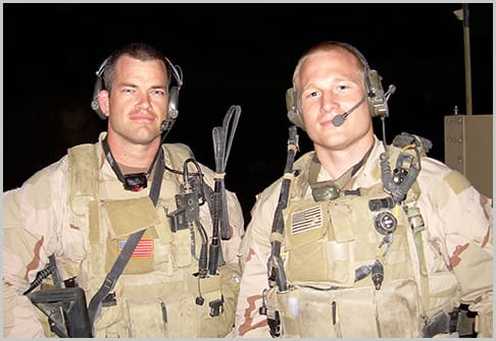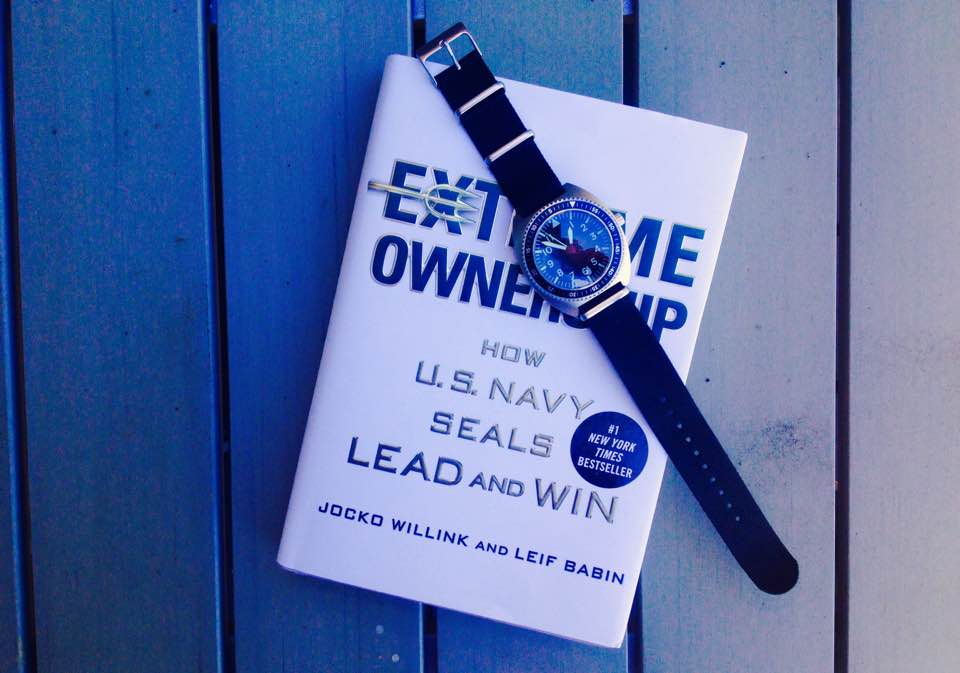"Discipline equals freedom."
— Jocko Willink and Leif Babin
Extreme Ownership is a serious gut-check of a book. My boss at Huckberry recommended this one and I'm so glad I took up the challenge. From the Preface, I was hooked and able to find applications of its central ideas to better work across teams, manage freelancers, communicate with vendors and supervisors; but most importantly, to assess my own work.
I've also listened to a few of Jocko's podcasts and am really impressed by his thoughtfulness and integrity. Plus, being in the presence of such accomplished men, veterans who've overcome the most dangerous and difficulty training, makes most of my problems look like cake walk. Perspective.
I've also listened to a few of Jocko's podcasts and am really impressed by his thoughtfulness and integrity. Plus, being in the presence of such accomplished men, veterans who've overcome the most dangerous and difficulty training, makes most of my problems look like cake walk. Perspective.
FAVORITE SECTIONS
Chapter 2: No Bad Teams, Only Bad Leaders — Extreme personal ownership of your sphere of influence and responsiblities, the human tendency to look to be led when shit hits the fan.
Chapter 6: Simple — The importance of group cohesion, the danger of friendly-fire and personal agendas that conflict with the mission.
Chapter 7: Prioritize and Execute — The importance of evaluating all needs and prioritizing them based on input from key leaders when possible, communicating them to everyone, (re)directing resources to accomplish #1 and then move down the list.
Chapter 11: Decisiveness Amid Uncertainty — Acting with limited information and planning for things to break down, including communication.
Chapter 12: Discipline Equals Freedom — The value of checklists, processes, and accountability. And waking up early without fail.
Chapter 6: Simple — The importance of group cohesion, the danger of friendly-fire and personal agendas that conflict with the mission.
Chapter 7: Prioritize and Execute — The importance of evaluating all needs and prioritizing them based on input from key leaders when possible, communicating them to everyone, (re)directing resources to accomplish #1 and then move down the list.
Chapter 11: Decisiveness Amid Uncertainty — Acting with limited information and planning for things to break down, including communication.
Chapter 12: Discipline Equals Freedom — The value of checklists, processes, and accountability. And waking up early without fail.
QUOTES I LIKE
{*} "If you don't understand or believe in the decisions coming down from your leadership, it is up to you to ask questions until you understand how and why those decisions are being made." (84)
{*} "Remember, the enemy is out there. The enemy is all the other competing companies in your industry that are vying for your customers. The departments within and the subsidiary companies that all fall under the same leadership structure — you are all on the same team. You have to overcome the 'us vs. them' mentality and work together, mutually supporting one another." (124)
{*} "...All animals, including humans, need to see the connection between action and consequence in order to learn or react appropriately." (145)
{*} "Leaders [even Junior ones] must be empowered to make decisions." (186)
{*} "When you have the discipline to get up early, you are rewarded with more free time...Discipline equals freedom." (265)
{*} "As a leader, if you are down in the weeds planning the details with your guys, you will have the same perspective as them, which adds little value. But if you let them plan the details, it allows them to own their piece of the plan. And it allows you to stand back and see everything with a different perspective, which adds tremendous value. You can see the plan from a great distance, a higher altitude and you will see more." (214)
{*} "...Some are born with the natural leadership qualities, such as charisma, eloquence, sharp wit, a decisive mind, the willingness to accept risk when other might falter, or the ability to remain calm in chaotic, high-pressure situations. Other may not possess these qualities innately. But with a willingness to learn, with a humble attitude that seeks valid constructive criticism in order to improve, with disciplined practice and training, even those with much less natural ability can develop into highly effective leaders." (285)
{*} "Remember, the enemy is out there. The enemy is all the other competing companies in your industry that are vying for your customers. The departments within and the subsidiary companies that all fall under the same leadership structure — you are all on the same team. You have to overcome the 'us vs. them' mentality and work together, mutually supporting one another." (124)
{*} "...All animals, including humans, need to see the connection between action and consequence in order to learn or react appropriately." (145)
{*} "Leaders [even Junior ones] must be empowered to make decisions." (186)
{*} "When you have the discipline to get up early, you are rewarded with more free time...Discipline equals freedom." (265)
{*} "As a leader, if you are down in the weeds planning the details with your guys, you will have the same perspective as them, which adds little value. But if you let them plan the details, it allows them to own their piece of the plan. And it allows you to stand back and see everything with a different perspective, which adds tremendous value. You can see the plan from a great distance, a higher altitude and you will see more." (214)
{*} "...Some are born with the natural leadership qualities, such as charisma, eloquence, sharp wit, a decisive mind, the willingness to accept risk when other might falter, or the ability to remain calm in chaotic, high-pressure situations. Other may not possess these qualities innately. But with a willingness to learn, with a humble attitude that seeks valid constructive criticism in order to improve, with disciplined practice and training, even those with much less natural ability can develop into highly effective leaders." (285)
ABOUT THE AUTHORS

Jocko Willink and Leif Babin are combat-vets who led the most highly decorated Special Operations Unit of the Iraq War. Their main mission was to help U.S. forces secure Ramadi, a city deemed "all but lost." I appreciated that their firsthand accounts of battle, heroism, and loss are not Extreme Ownership's focus, but rather used to illustrate the leadership principles at play. {JG}
OTHER BOOKS & POSTS YOU MAY LIKE
{*} The Obstacle Is The Way by Ryan Holiday {My Rec}
{*} The 33 Strategies of War by Robert Greene {My Rec}
{*} Influence: The Psychology of Persuasion by Robert Cialdini. {My Rec}
{*} The Best Books I Read In 2016
{*} The Best Books I Read In 2015
{*} Why You Should Read 50 Books A Year — And How To Do It
{*} The 33 Strategies of War by Robert Greene {My Rec}
{*} Influence: The Psychology of Persuasion by Robert Cialdini. {My Rec}
{*} The Best Books I Read In 2016
{*} The Best Books I Read In 2015
{*} Why You Should Read 50 Books A Year — And How To Do It



















